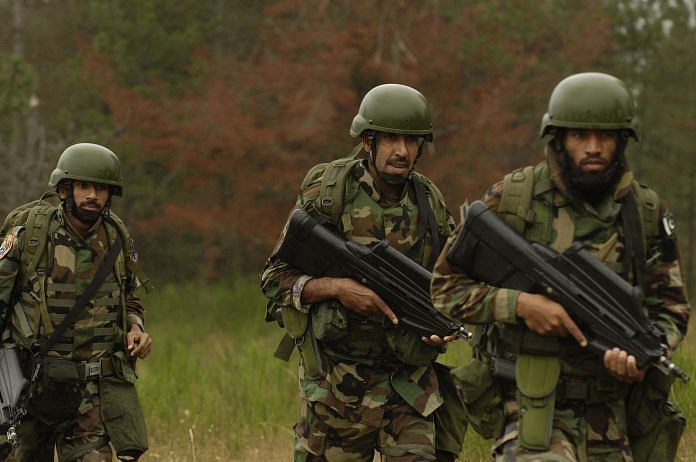New Delhi: The Pakistan Institute for Conflict and Security Studies (PICSS), an independent think-tank based in Islamabad, has found that 27 lives were lost in 15 instances of militancy last month following a “historical pattern of a rise in violence at the beginning of the year”.
In December 2019, there were 11 attacks, resulting in 12 deaths.
The report also found that 60 people were injured in these attacks — 5 of which took place in the Khyber-Pakhtunkhwa (K-P) province.
The PICSS said the new year is “a time for militants to demonstrate new commitment or an attempt to seek financial resources” to sustain their attacks, or “maybe both”.
The number of militant attacks has, however, dropped by over 85 per cent in the last decade, another study by a group of Pakistani think-tanks has found.
Terror attacks dropped from nearly 2,000 in 2009 to fewer than 250 in 2019, according to the study.
“The sharp decrease in terrorist violence, which we began to see in 2014, is nothing short of remarkable,” said Michael Kugelman, Asia Program Deputy Director at the Washington-based Wilson Center.
But, he cautioned, “Pakistan is certainly not out of the woods yet.”
Also read: Look who were availing Pakistan’s income support scheme for women — male govt officers
23 held for sedition
Progressive Academics Collective, a civil society group, demanded the release of 23 protesters held since 28 January on the charges of sedition and incitement to violence against the state.
The activists were protesting against the arrest of Manzoor Pashteen, chief of the Pashtun Tahafuz Movement, an organisation fighting for Pashtun rights.
Pashteen was arrested on 27 January, and those protesting against it were arrested the next day.
The PAC said the protesters — many of them “graduates or current students of Pakistan’s best universities” — were agitating peacefully when the police picked them up.
“The arrested persons were intellectual assets for the country and not criminals,” the PAC said in a statement Sunday, adding, that “their wish to transform Pakistan implies taking a stand against hate written into educational curricula”.
Newspaper council calls for fewer restrictions on press
The Council of Pakistan Newspaper Editors (CPNE) has objected to the government’s proposed advertising policy.
The CPNE called upon the government to do away with restrictions and censorship. It also rued the fact that government advertising for newspapers had “stopped altogether”.
The council further termed the state of the free press in Pakistan “alarming”.
It has resolved to come up with its own suggestions for a “judicious distribution” of advertisements, calling the government’s tactics “outdated and dictatorial”.
Meanwhile, Adviser to the Prime Minister on Information Firdous Ashiq Awan has clarified that the policy is “not final” and will be finalised in consultation with another association, the All Pakistan Newspapers Society, and other stakeholders.
Locust infestation now a ‘national emergency’
The Pakistan government has declared locust infestation a national emergency.
Information Minister Firdous Ashiq Awan has described the situation as “the worst locust infestation in more than two decades” Saturday last week during the announcement.
Pakistan is already suffering from food inflation due to the wheat crisis, and the infestation could be a further threat to food security as locusts have already damaged cotton, wheat, maize and other crops.
The locusts entered Pakistan through Iran in June last year. The attack is acute in the Punjab province, which borders India.
An editorial in Dawn criticises the government for its late action, saying the outbreak exposes “how ill-prepared and ill-equipped the authorities are to handle such emergencies. Aerial pesticide spraying is said to be the only effective control. But the government does not have any aircraft for spraying pesticides in areas that are swarming with desert locust…”
Some of the locusts have spilled into India, too, prompting Punjab CM Captain Amarinder Singh to flag the issue with Prime Minister Narendra Modi.
Also read: Lahore student picked up for making ‘anti-state’ speeches returns home



